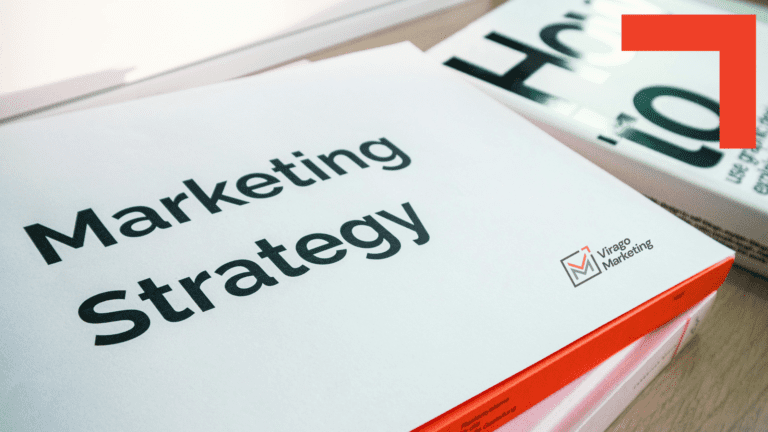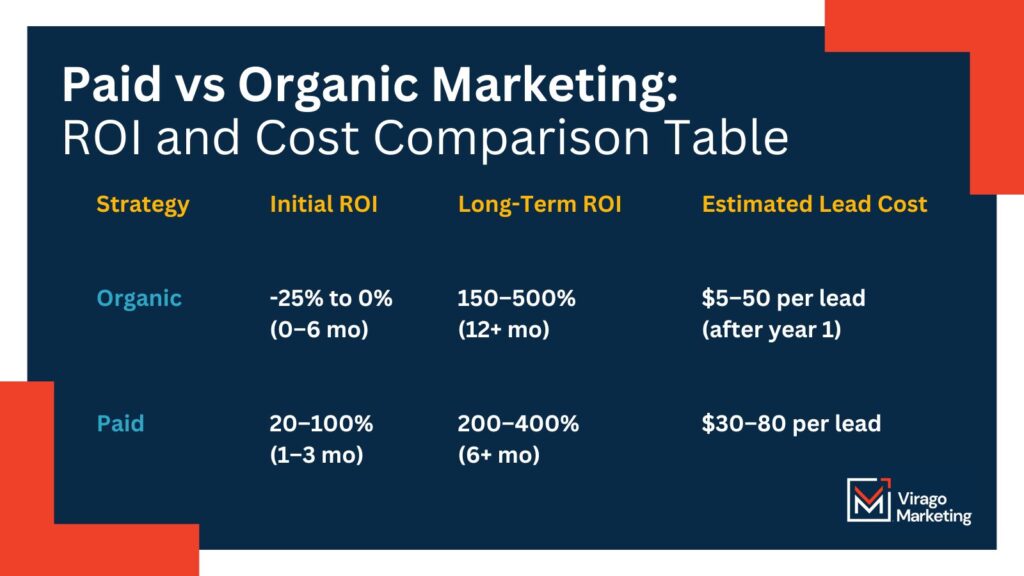Paid vs Organic Marketing: How to Maximize ROI with a Hybrid Strategy
Combining paid and organic marketing strategies delivers the best ROI by using paid ads for quick wins and organic efforts for long-term trust, with success depending on your goals, budget, and audience behavior.

In today’s digital landscape, marketers constantly face a familiar question: Should we invest in paid ads, organic growth—or both? The truth is, the best ROI often comes from a smart mix. Here’s how to approach it.
What’s the Difference Between Paid and Organic Marketing?
Paid Marketing gets you fast visibility by putting budget behind ads on platforms like Google or social media. It’s precise, scalable, and great for short-term wins—but stops working when the spend stops.
Organic Marketing builds long-term value using SEO, content marketing, and social engagement. It takes time but pays off with credibility, authority, and sustained traffic.
When to Use Organic Marketing
Go organic when:
- You’re building brand authority in B2B, healthcare, or education.
- Budgets are tight—startups and small businesses can stretch further here.
- Your audience values depth, research, and authenticity.
When to Use Paid Marketing
Go paid when:
- You’re launching a product or need fast traction.
- The market is crowded and competitive.
- You need to precisely target or retarget specific users.
How to Combine Paid and Organic Strategies for Maximum ROI
The real power comes from using both, strategically:
- Boost What Works: Use paid ads to promote high-performing organic content.
- Leverage Data: Apply paid campaign insights to shape your organic strategy.
- Retarget Smarter: Serve ads to users already engaged with your organic content.
Success Tips for Blending Paid and Organic Marketing
- Set Clear Goals: Separate short-term wins from long-term growth.
- Know Your Audience: Tailor tactics based on how they consume content.
- Build Evergreen Content: Create foundational assets you can repurpose across both paid and organic.
- Test and Optimize: Run small experiments, analyze results, scale what works.
- Track Cross-Channel Impact: Look at how paid and organic support each other.
- Think Mobile: Optimize everything for mobile—no exceptions.
Plan for Seasonality: Align spend with demand cycles.

TL;DR: Want maximum ROI from your marketing? Use a mix of paid and organic. Paid drives quick wins, organic builds lasting trust. This post breaks down when to use each, how to combine them, and what ROI to expect.
FAQs
What is the ROI difference between paid and organic marketing?
Paid marketing typically delivers faster short-term ROI (20–100%), while organic marketing offers higher long-term ROI (150–500%) once traction builds.
When should I use paid vs organic marketing?
Use paid marketing for launches, promotions, or competitive spaces. Go organic to build trust, thought leadership, and sustainable traffic.
How can I combine paid and organic strategies effectively?
Promote top-performing organic content with paid ads, use retargeting on engaged users, and apply paid data to optimize your SEO strategy.
Which is better for B2B: paid or organic marketing?
Organic tends to be more effective long-term for B2B, especially in trust-heavy industries, but paid can accelerate early traction.
Find Your Perfect Mix
What’s right for your business depends on:
- Stage: Startups may lean organic; established brands can balance both.
- Industry: Competitive spaces often require paid support.
- Budget: No funds? Focus on content. Got funds? Test ads.
Audience: Let their behavior guide your strategy.
Conclusion
The best marketing strategies don’t choose sides—they combine. Use paid marketing for speed and scale, and organic for trust and longevity. Together, they deliver real ROI.
Need help finding the right balance? Let’s build a custom strategy that works for your goals.
Discover Your Marketing Maturity Level
Click the button below to take the assessment.


